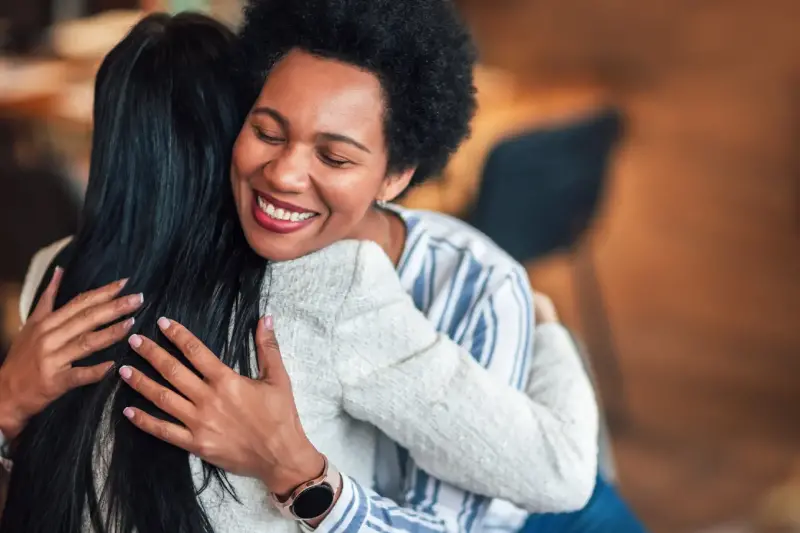True friendship is one of life’s most profound gifts. While social media bombards us with endless connections, only a handful evolve into deeper, meaningful relationships that withstand the tests of time and circumstance. The pursuit of ever-lasting friendships is universal, yet the path to cultivating and sustaining such bonds often seems shrouded in mystery. Let’s illuminate the hidden keys to these invaluable relationships and offer practical, research-backed tips for nurturing connection in an increasingly disconnected world.

Foundations Of Trust And Vulnerability
Trust is the bedrock of every enduring friendship. It develops over time through consistent actions and honest communication. According to sociologists, trust flourishes when friends show up for one another—especially during challenging times. Reliability creates a sense of safety and affirmation, allowing friends to lower their guard.
Vulnerability is often seen as a weakness, but within friendships, it is a hidden strength. Being willing to share personal thoughts, fears, and dreams deepens understanding and dismantles superficial walls. Dr Brené Brown, a renowned researcher on human connection, affirms that “vulnerability is the birthplace of love, belonging, joy, courage, empathy, and creativity.” When friends allow one another into their inner world, it paves the way for bonds to grow roots that last.
Communication: The Life Force Of Lasting Relationships
Honest, open communication is essential to any enduring friendship. This doesn’t mean constant agreement—true friends can disagree, even argue, and still maintain respect. The secret lies in active listening. Listening sincerely, without planning your response, enables friends to feel valued and understood.
It’s also crucial to check in regularly, even with a simple message or call. Studies show that frequent, low-pressure touchpoints help friendships thrive, especially in adult life when responsibilities pull us in different directions. Regular communication keeps friendships from fading into the background, reminding both parties that they matter.

Shared Experiences And Quality Time
Shared experiences—big or small—form the backbone of strong friendships. You don’t need extravagant holidays or grand adventures; everyday moments often carry the most meaning. Going for a walk, cooking together, or simply reminiscing over old memories strengthens your shared narrative.
Research from the University of Kansas suggests it takes around 200 hours together to turn an acquaintance into a close friend. While this may seem daunting, these hours accumulate through spending consistent, quality time together. Finding rituals—such as monthly catch-ups, annual trips, or regular activities—creates lasting anticipation and a sense of tradition that secures the friendship’s foundation.
Empathy And Emotional Support
Empathy is the vital connective tissue of any relationship. It bridges differences and fosters understanding without judgment. In friendships, being able to see situations from your friend’s perspective and validating their feelings goes a long way. Emotional support doesn’t require grand gestures—it can be as simple as listening without interrupting or offering a comforting word at the right moment.
True friends celebrate each other’s victories, but more importantly, they stand together through hardships. Being present during tough times cements the sense of reliability and safety that every meaningful friendship requires. This mutual support creates a cycle of giving and receiving that deepens bonds over time.

Adaptation And Growth Together
People—and friendships—change over time. One less-discussed key to lasting friendship is flexibility. Relationships face shifting circumstances: career moves, family changes, new priorities. The ability to adapt to these changes and allow the friendship to evolve is critical. Sometimes this means recalibrating how you stay connected, adjusting expectations, or learning new ways to support one another.
Growth should not drift you apart. Seek to understand and accommodate changes in your friend’s life, and invite them into yours. True friendship grows alongside you, not behind you.
The Role Of Forgiveness
Even the closest friendships encounter misunderstandings or hurt feelings. Holding grudges or bringing up past conflicts creates distance and resentment. On the other hand, forgiveness, when genuine, acts as a healing balm.
A lasting friendship involves assuming good intent, talking things out, and being willing to move on from mistakes. It’s about choosing the relationship over being right. As the old saying goes, “to err is human, to forgive, divine”—especially in friendship.
Conclusion
Friendship, in many ways, is both an art and a practice. While some aspects feel intangible or serendipitous, much of it comes down to a set of simple, intentional actions: showing up, listening, sharing, forgiving, and growing together. As the world pulls us in different directions, these hidden keys unlock the door to bonds that not only endure, but flourish. Investing in deep, meaningful relationships is one of the most rewarding self-improvement journeys you can embark upon—for your happiness, resilience, and sense of belonging.
